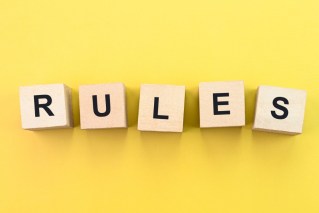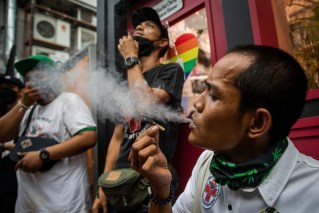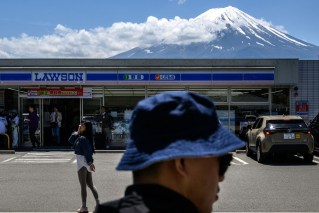Thailand pushes for backflip on recreational cannabis use


Thailand is likely to once again criminalise cannabis. Photo: Getty
Travellers have been warned that Thailand, one of the first Asian countries to decriminalise recreational cannabis use in 2022, now has plans to relist it as an illegal substance.
On Wednesday, Thai Prime Minister Srettha Thavisin announced on social media platform X that he wanted the health ministry to amend the rules so cannabis was once again classed as a narcotic.
“The ministry should quickly issue a rule to allow its usage for health and medical purposes only,” he said.
Srettha’s comments followed a meeting with agencies involved in narcotics suppression.
In the meeting, he vowed to take a tough stand on illicit drugs and ordered authorities to deliver results and show “clear progress” in the next 90 days.
“Drugs are a problem that destroys the future of the country – many young people are addicted,” he said.
“We have to work fast to confiscate assets [of drug dealers] and expand treatment.”
The move comes despite the rapid growth of the domestic retail sector for marijuana, with tens of thousands of shops and businesses springing up in Thailand in the past two years in an industry projected to be worth up to $1.8 billion by 2025.
Cannabis was first decriminalised for medical use in 2018, before the same was done for recreational use in 2022 under a previous government.
Critics of the 2022 change claim the liberalisation was rushed and caused confusion about the rules and regulations.
Why Thailand wants to ban cannabis
There has been talks about Thailand relisting cannabis for months now.
The main argument for doing so seems to be due to concerns of how marijuana use is affecting people’s health.
In February, forensic pathologist Smith Srisont told the ABC that part of his job includes screening corpses for illicit drugs and since the laws changed, he has seen a growing number of people with THC in their system.
He said it was common to find traces of THC in “unnatural cases such as motorcycle accidents and suicides”, though he noted it was hard to determine whether it was the cause of death.
Of course, there is strong opposition to reclassifying cannabis as a narcotic.

Cannabis has become a huge industry in Thailand when it was removed from the category of narcotic drugs in 2022.
Prasitchai Nunual, secretary-general of Thailand’s Cannabis Future Network, said re-criminalising cannabis would be a bad move for the economy and deal a big blow to small businesses and consumers.
“Many people have been growing cannabis and opening cannabis shops,” he told Reuters.
“These will have to close down.
“If scientific results show that cannabis is worse than alcohol and cigarettes, then they can relist it as a narcotic.
“If cannabis is less harmful, they should list cigarettes and alcohol as narcotics too.”
What do tourists need to know?
It is not immediately clear when cannabis in Thailand will be redefined as a narcotic again, or what will happen if people use it recreationally.
However, it would be wise for tourists to steer clear of any and all cannabis products when it is reclassified.
Thailand is known to have severe penalties for drug offences and they include the death penalty by lethal injection.
“Possession of even small quantities of drugs for recreational purposes can lead to long jail sentences and deportation,” the Australian government site Smartraveller warns.
“Thai authorities may conduct spot checks for illegal drugs in tourist areas.
“Travellers have been targeted for narcotic tests. Under Thai law, authorities have the right to demand urine samples from people suspected of taking illegal drugs.”
The current Smartraveller advice notes that the private recreational use of cannabis is legal, so long as the THC content is below 0.2 per cent in weight.
Unlike smoking, it is illegal to use cannabis in public spaces as it is considered to be a “public nuisance”.
People can be arrested or be issued with fines for using cannabis in public spaces.
Smartraveller also warns people to be aware of the laws if they are visiting any country where the use of cannabis is illegal and decide to use cannabis.








